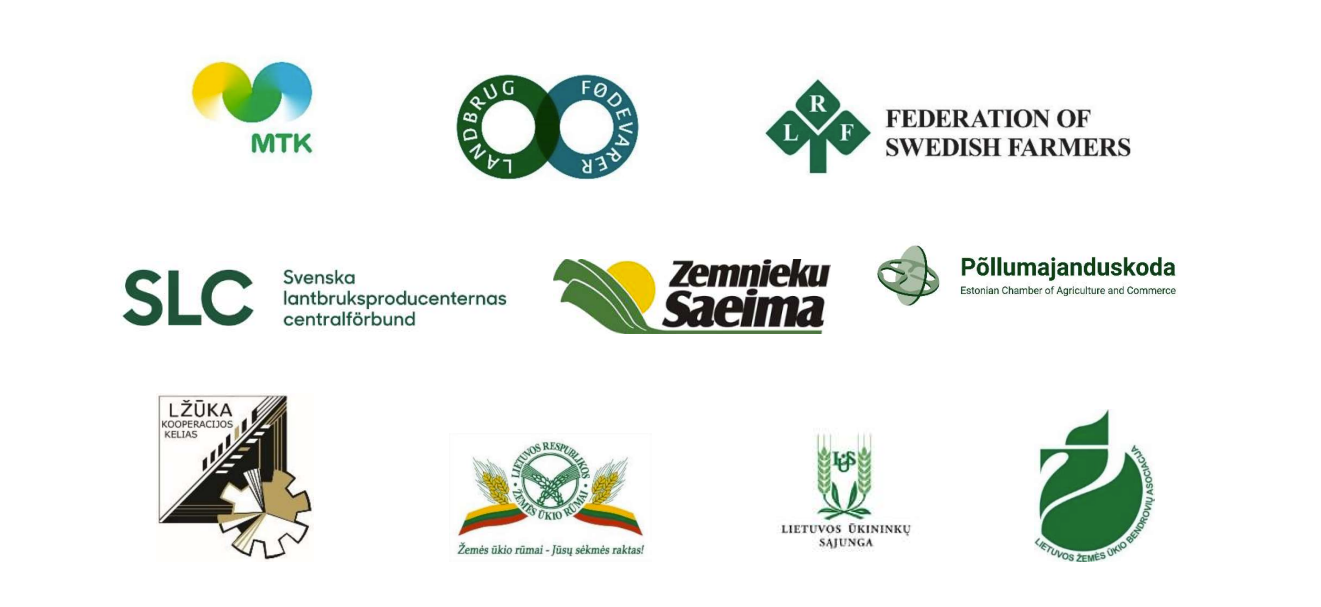Nordic-Baltic farmers’ position on Sustainable Use of PPP’s Regulation - MTK en
News
Nordic-Baltic farmers’ position on Sustainable Use of PPP’s Regulation
23.06.2022
The European Commission published it's proposal on the sustainable use of plant protection products yesterday. Nordic and Baltic farmers acknowledge the Farm to Fork strategy’s goal to reduce the use and risk of Plant Protection Products (PPP’s). We support the change towards less hazardous products. However, this shift must be made in a fair and science-based way and farmers need enough time to be able to adapt. PPP’s are important for helping farmers to secure healthy and productive crops when used responsibly. PPP’s also play an important role in reaching climate neutrality as yield losses are reduced.
Among the EU Member States, the use of PPP’s in actual amounts (kg/hectare) differ with more than 10-fold. Therefore, legally binding national minimum reduction targets should take this into account. The use of plant protection products in the Nordic and Baltic countries is much lower than the EU average, and our agriculture is one of the most sustainable in the EU in this respect. As a result, the potential for reducing the use of plant protection products is much lower than in many other EU Member States. Historical changes in the use of PPP’s, also taking into account the changes in the arable land area, as well as geographical and socio-economic conditions and different starting points of the different Member States needs to be incorporated when defining a baseline period as well as the future reduction targets. In the Nordic countries there has been a lot of work done on significantly reducing the use of chemical and hazardous pesticides in decades.
Although the amount of PPP’s marketed in the Baltic States has increased somewhat, the Baltic States are still among the EU countries with the lowest use of PPP’s. The slight increase in the use of PPP’s is linked to the restoration of production potential in these countries following the sharp decline in agricultural production in the 1990s. The area and yield of crops have increased significantly in the Baltic States since joining the EU.

For those EU Member States, that have already reduced their usage of PPP’s or who use PPP’s on very low level, a further reduction would mean high yield losses, lower competitiveness and a bigger threat to EU food security, thus potentially increasing our reliance on imports. Imports that now has been partially blocked. The usage of PPP’s should also be connected to the yield – a reduction that means that certain crops can´t be grown or that yields and quality will decrease is of no use.
Nordic and Baltic farmers therefore stress that instead of having binding regulation on the use of PPP’s, responsible use should be encouraged and implemented throughout EU. In general farmers use PPP’s in a moderated and reflected way in our region. Farmers are already focusing on environmental, economic and health issues. It is important to focus on further educating farmers and increase the use of precision farming. It is also important to keep up the variety of products to avoid one-sided use and to ensure efficiency on a long term. Integrated Pest Management (IPM) is already a part of the legal frame and the tools need to be further developed to help the farmers to be able to obtain reduction targets. To be able to do this, the farmers need also time.
But all regulations must be based on accurate scientific research and data. More data on the use of PPP’s could potentially help in this path, but it must be done in a way that does not significantly increase the bureaucratic and administrative burden for farmers.
In Brussels, 22 June 2022
Juha Marttila, President - The Central Union of Agricultural Producers and Forest Owners (MTK), Finland
Mats Nylund, President SLC - The Central Union of Swedish-speaking Agricultural Producers in Finland
Søren Søndergaard, Chairman - Danish Agriculture & Food Council
Roomet Sõrmus, Chairman of the Board - Estonian Chamber of Agriculture and Commerce
Raimundas Juknevičius, President - Lithuanian Farmers' Union
Palle Borgström, President - Federation of Swedish Farmers – LRF
Jonas Kuzminskas, President - Lithuanian Association of Agricultural Cooperatives
Eimantas Pranauskas, President - Lithuanian Association of Agricultural Companies
Arunas Svitojus, President - The Chamber of Agriculture of the Republic of Lithuania
Maira Dzelzkaleja-Burmistre - Deputy Chair of the Board, Union "Farmers Parliament", Latvia

